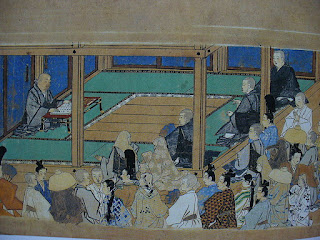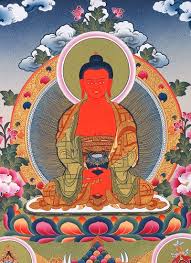If one desires to attain birth in the Pure Land, both his heart and practice must be in concert. Therefore, the interpretation of Master Shan-tao reads: ‘Practice alone is not sufficient for the accomplishment of birth in the Pure Land. Neither is aspiration alone. Realization occurs only when aspiration and practice are concomitant.’
Both heart and
practice must be a single discipline, not only to achieve birth in the Pure
Land, but also to realize Enlightenment in the Holy Gate. This is referred to
as ‘observing the practice by awakening the heart to Enlightenment’.
In Jodo Shu (Pure Land
school), Master Shan-tao called this ‘the steadfast heart and practice’.”[1]
“Heart” refers to the
“entrusting heart” (shinjin) or faith in Amida Buddha. This is also linked with
“aspiration”, which is aspiration or
desire to be born in the Pure Land. “Practice”
is to say the Name of Amida Buddha.
All these three: faith (shinjin), the saying of the Name and the wish (aspiration) to be born in the Pure Land are the three requirements of Amida in His Primal Vow, where He asked beings to entrust to Him, say His Name and wish to be born in His Pure Land: “sincerely entrust themselves to me (faith/shinjin), desire to be born in my land (aspiration), and say my Name (Nembutsu) perhaps even ten times”.







.jpg)

























